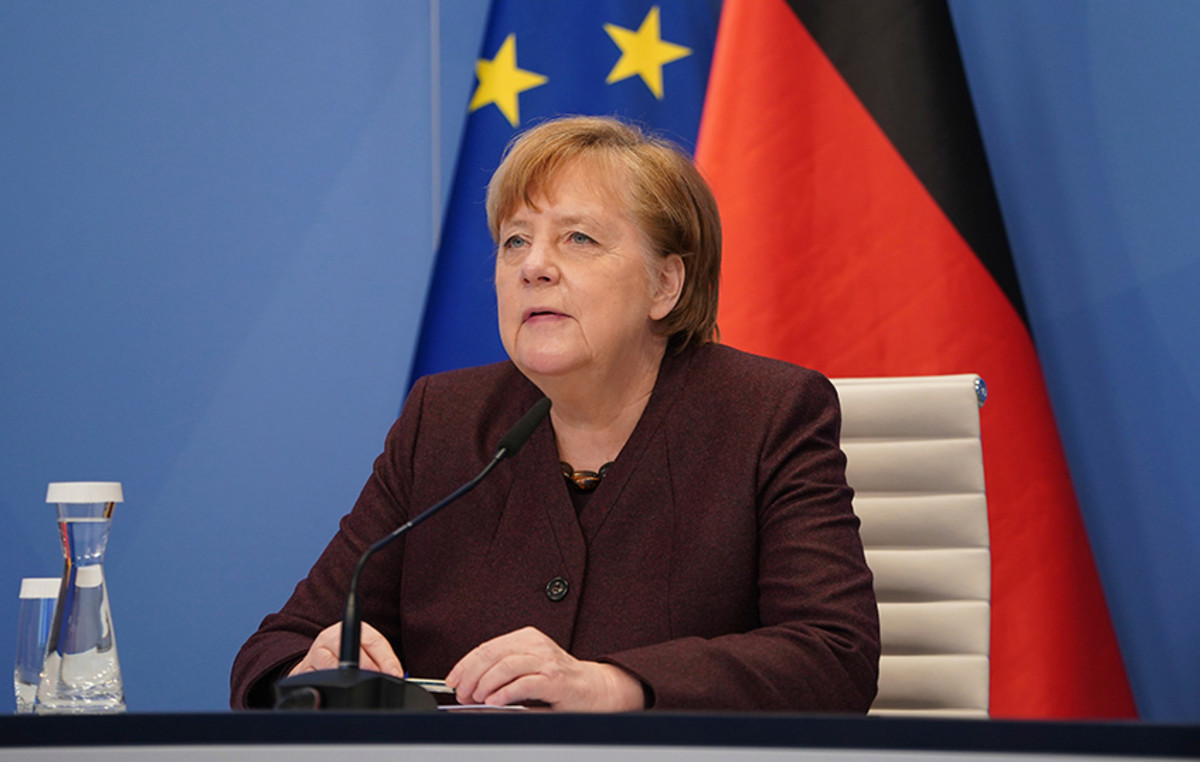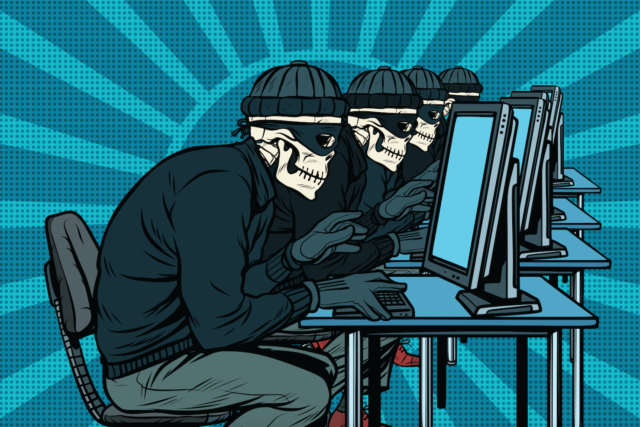There is no political playbook for how to handle another apparent assassination attempt on a major party presidential candidate weeks before an election.
Yet that is where the rival campaigns now find themselves after what appears to be a second attempt to kill Republican nominee Donald Trump in the latest twist in a political season that has defied precedent and highlighted the country’s deep polarization.
Twice in two months, the United States has narrowly avoided the tragedy of seeing a major political figure assassinated during an election season — and the toxic forces such an outrage could unleash in a country wracked by visceral partisan divisions.
The fact that such incidents are happening speaks to the undercurrent of violence that is a constant shadow over American politics, one that is exacerbated by the easy availability of firearms. Both nominees are now addressing outdoor crowds behind bulletproof screens. There will now be fresh fears that a stormy run-up to Election Day could push the country further down a dark path.
After decades without an assassination attempt on a top executive branch official, a chilling reality was revived this year: Those who put themselves forward for the highest office are potentially putting their lives at risk.
Quick reactions from Trump’s friends and foes
Vice President Kamala Harris, her running mate Minnesota Gov. Tim Walz and President Joe Biden were quick to express relief that a person suspected of planning to attack Trump at one of his Florida golf courses was spotted before he could fire a shot and that the former president was safe. Harris said she had been briefed on the incident and wrote on social media: “I’m glad he’s safe. Violence has no place in America.”
As crass as it is to consider political ramifications so soon after an apparent assassination attempt, everything in America becomes politicized in minutes — especially with 50 days left until a close election.
Trump — who seconds after surviving his first, much closer assassination attempt in Butler, Pennsylvania, on July 13, stood up and said, “Fight, fight, fight” — quickly released a fundraising email on Sunday afternoon that said, “I am safe and well!”
“Nothing will slow me down. I WILL NEVER SURRENDER!” Trump wrote in the email, which contained a link to a website that allowed supporters to donate.
And one of the former president’s top allies, New York Rep. Elise Stefanik, issued a statement reprising the idea that Trump was spared by divine providence, which was a recurring theme at the Republican National Convention. The House GOP conference chair suggested that, given what had happened, the country now had a duty to elect Trump. “Thankfully, God continues to watch over President Trump. As Americans, we must unite behind him in November to protect our republic and bring peace back to the world,” she said.
House Speaker Mike Johnson, after visiting the former president at his Mar-a-Lago resort on Sunday, also suggested that Trump benefited from divine intervention and played into the narrative that Trump is unstoppable. “No leader (in) American history has withstood more attacks and remained so strong and resilient. He is unstoppable.”
This sense of Trump being protected by God fueled the sentiment among his supporters at the Milwaukee convention that he was destined to win. Those assumptions were tempered, however, when Biden shelved his reelection bid, allowing Harris to step in and transform the race.

More Questions for the Secret Service
The man arrested in the apparent assassination attempt was located by the Secret Service several holes ahead of the former president at the Trump International Golf Club in West Palm Beach, Florida.
Stefanik asked how “an assassin was allowed to get so close to President Trump again?” She wrote: “Answers continue to be lacking in the horrific assassination attempt in Pennsylvania and we hope there will be a clear explanation for what happened today in Florida.” The New York Republican’s questioning of the Secret Service will likely foreshadow debate in the coming days about the level of protection the former president should receive — especially given what happened in Butler.
Trump has suggested, without evidence, that the Biden administration and Harris were complicit in the Pennsylvania assassination attempt because he claims they set up the Justice Department against him. But all of Trump’s criminal cases have proceeded through regular court proceedings, and there is no evidence that the White House was in any way involved.
The second apparent assassination attempt comes amid a turbulent campaign that has defied convention and prediction. For the first time since 1968, a sitting president has ended his reelection campaign months after the election, reluctantly making way for his vice president, who has a chance to become the first Black woman of South Asian descent to lead the United States. The Republican candidate is a convicted felon who is facing multiple criminal charges for his unprecedented attempt to hold on to power after losing the last election. If he is returned to the White House, Trump would be only the second president who lost reelection to win a second nonconsecutive term.
The former president’s actions in the coming days will be closely watched. After the first assassination attempt, the former president called for the country to come together. But his promise of unity did not last much longer than the first third of his speech at the Republican National Convention, which degenerated into the characteristic division on which he built his political career.
Trump has also repeatedly ignored advice from senior Republicans and his campaign team to stick to a concise, pointed argument against Harris. They want him to focus on her role in the Biden administration’s economic policy at a time when many voters are still struggling with high prices despite declining inflation. So even if his aides advise him to renew his theme of national unity, there’s no guarantee Trump will listen or consider it in his political interests.
Another apparent attempt on his life is likely to have some level of personal impact on the former president. In the days after narrowly escaping death or serious injury in Pennsylvania, when a bullet grazed his ear, Trump seemed chastened. But since then, he has returned to his boisterous self, and if anything, his rhetoric has become even more extreme. He recently warned his political opponents that he will use the law against them and arrest them if he deems the election fraudulent, and he has doubled down on his baseless claims that the last election was stolen.
In the immediate aftermath of Sunday’s incident, the focus of most of Trump’s opponents was on maintaining calm in a volatile moment. There can be no justification in a democracy for trying to silence any political figure through violence. At the same time, however, there will be debate in the coming days about the extent to which the former president — a singularly inflammatory figure — helped stoke the nation’s divisions.
Earlier this weekend, for example, the former president and his running mate, Ohio Sen. J.D. Vance, were ratcheting up political tensions. Both Republicans highlighted unfounded allegations that Haitian refugees in Springfield, Ohio, were stealing and eating pets. Trump’s opponents warned that his continued racial demagoguery was putting lives at risk.
In a contentious interview on the “State of the Union” CNN On Sunday, Vance insisted that the allegations about Haitian migrants — who are in the United States legally — were validated by complaints from some of his constituents. And far from backing down from the story — despite testimony from several local officials that there is no truth to the rumor — Vance angrily condemned suggestions that recent bomb threats against the city had anything to do with him and Trump escalating the allegations. He told Dana Bash: “This city has suffered terribly from the problem — from Kamala Harris’ policies.”
But Republican Gov. Mike DeWine, asked on ABC on Sunday if he had seen any evidence of the pet-eating rumors, said: “No. Absolutely not.” The Ohio governor added that the Haitian migrants, whom Trump threatened to deport to Venezuela on Friday, were in the country legally.
Under normal circumstances, an apparent assassination attempt on a presidential candidate could trigger a wave of sympathy that could translate into political momentum. But the latest near miss for Trump comes at a time when the race with Harris is neck and neck. With both candidates fighting for perhaps several hundred thousand mobile voters in swing states, it’s unclear how much room there is to change perceptions of Trump, who has been a polarizing figure since launching his first national campaign in 2015.
The former president is almost certain to use the latest events to bolster his baseless claim that he is a victim of persecution designed to keep him from power. But it is too early to tell whether the second apparent assassination attempt will have a greater political impact than the first.
Ultimately, it will be up to voters to resolve this unpredictable and dangerous campaign season.
US Elections: What is voluntary voting and why is it adopted?
This content was originally published in Analysis: New assassination attempt on Trump has unpredictable consequences on the CNN Brasil website.
Source: CNN Brasil
Bruce Belcher is a seasoned author with over 5 years of experience in world news. He writes for online news websites and provides in-depth analysis on the world stock market. Bruce is known for his insightful perspectives and commitment to keeping the public informed.







